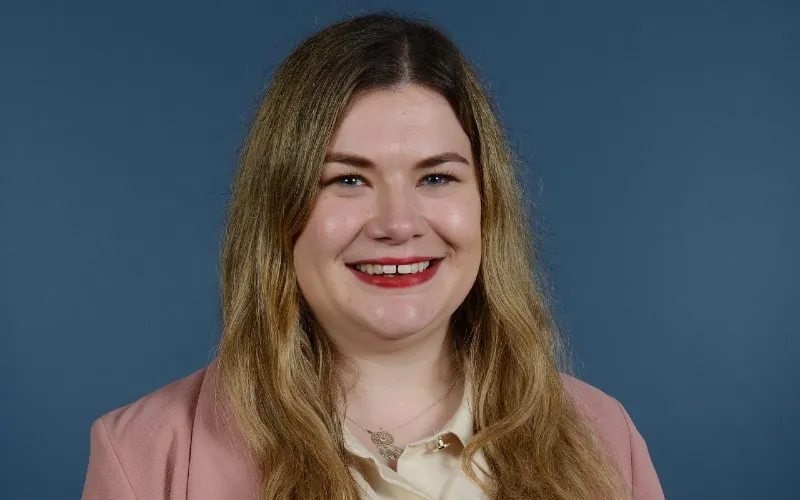With today marking the start of Mental Health Awareness Week, a colleague at home care software firm CareLineLive has revealed how her neurodiversity, the right to work from home and supportive colleagues help her stay on top of her game.
Jess Davies works as a sales representative at the Slinfold-based firm and lives with OCD and anxiety.
“My OCD actually makes me a stronger salesperson,” she said.
“I am highly organised, meticulous with details and ensure nothing and nothing slips through the cracks.
“Every conversation goes into our sales system right down to, if they say they’ve got a dog, I’ll write that down! This helps me build genuine relationships with clients.”
The condition is one that is often misunderstood, especially in the workplace.
Davies continued: “My OCD makes me organised and highly attentive to detail. However, it can also go too far, which is why the right workplace support and strategies are so important.
“At university, I rewrote my dissertation three times. I did very well, but it came at a cost, with exhaustion and sleepless nights.”
She has spoken specifically about the measures in place at the company which benefit her, explaining that members of the team go ‘beyond box-ticking’.
As a sales representative, she sometimes needs to attend business events and, here, she gets extra support.
Davies said: “We have a mental health first aider, Monicka, who checks in on me and steps in if anyone feels overwhelmed.
“After a particularly bad flare-up last year, we had regular calls and Monicka referred me for additional help.
“Our events coordinator provides a full itinerary, right down to where I can park. That really helps. If it gets overwhelming, I know I can step outside or head to a quiet space if needed.”
Private healthcare and access to therapy also play a role but, according to Davies, it’s the everyday interactions that matter most.
“My manager is incredibly understanding and regularly updates me on how I am doing. With my OCD, I sometimes fear I am underperforming or at risk of being fired, even when I am actually excelling,” she explained.
“Having regular feedback and communication helps counter those obsessive thoughts.
“If there’s a change at CareLineLive, my manager will always outline what it means for my job role, so I know exactly what to expect.
“That kind of reassurance is vital. CareLineLive has been, without question, the most supportive employer I have had. They treat you as a person, not a number.”
According to Davies, the ability to work from home is one factor that helps her manage her conditions.
She said: “At home, I can step away, reset and return, without anyone even knowing. When you’re neurodiverse, noise can be overwhelming.
“At a previous noisy call centre role where home working wasn’t the norm, I eventually realised, ‘I can’t do this anymore’. I left the job on my birthday.”
“Sometimes, people think you can’t work with OCD, but you absolutely can.
“At work, like anywhere else, I’ve learned that my OCD is a part of me, but it doesn’t define me. It’s all about creating the right environment and making small but meaningful adjustments.”


